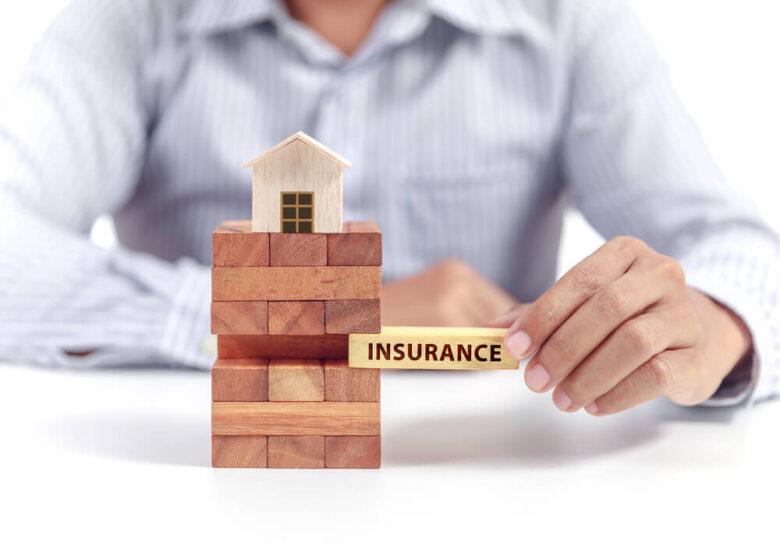Many homeowners are surprised to learn that some home improvements can actually lower their insurance premiums. Home insurance companies base their premiums on the level of risk they face when insuring your home. A safer, more durable home reduces the chance of costly claims. Insurance companies appreciate homeowners who take proactive steps to make their homes safer and stronger. Over time, these savings can add up. Making the right improvements is not only a smart financial choice, but it also gives you peace of mind.
Strengthen Your Roof and Improve Protection
Your home insurance premium is largely influenced by the condition and strength of your roof. Old roofs or roofs made of weak materials are more susceptible to damage from storms, heavy rain, or hail. A stronger, impact-resistant roof can save you money on your insurance premiums. Some insurance companies offer discounts on shingles that meet certain durability standards or on metal roofs. A new roof can also reduce the chance of leaks and other problems that often lead to claims. Insurers take such variables into account when determining premiums.
Build a Modern Security System
Another effective way to reduce your insurance costs is to upgrade your security system. Modern alarm systems with smart technologies, motion sensors, and 24/7 surveillance can make your home less attractive to thieves. A well-insured home reduces the risk for insurers, which can save you money on your premiums. Occasionally you can qualify for a discount if you have a security camera or a mortise lock. But more complex systems often offer higher discounts, especially when combined with emergency services.
Including Smart Home Devices that Detect Problems Early
Smart home technology not only provides convenience; it also helps prevent damage. Devices such as smart smoke detectors, water leak sensors, and temperature monitors can alert you to problems that would otherwise go unnoticed until they cause costly damage. For example, a water leak detector near your washing machine can help you find a leak before your basement floods. Many insurance companies offer discounts on homes that are equipped with smart security technology, as they value this early warning system.
Upgrade Electrical Systems and Plumbing
Outdated electrical wiring and old pipes are two major risk factors for fire and water damage. Insurance companies are aware of these hazards and typically charge higher premiums for homes with outdated systems. If you have an older home and you have your plumbing or electrical systems updated to meet current safety standards, your insurance company may be able to lower your premium. Newer systems are less likely to fail, which means fewer claims are filed. While such upgrades can be expensive up front, the savings on insurance and repair costs will be significant in the long run.
Invest in Storm or Wind-resistant Features
If you live in an area prone to hurricanes, tornadoes, or other extreme storms, you can better weather the elements and save a lot. Features like storm shutters, impact-resistant windows, and reinforced garage doors can significantly reduce the risk of storm damage. Insurance companies often offer discounts on these types of improvements to help reduce the number of claims after a natural disaster. You can also get a lower premium by installing a windproofing system or reinforcing your home’s foundation to reduce wind or water damage.
Fire Prevention Measures for Homes in High-Risk Areas
Fireproofing your home not only protects your property but can also reduce insurance premiums for homeowners in fire-prone areas. Insurance companies offer discounts on premiums for building fireproof homes. The process may involve creating defensible spaces, removing flammable vegetation around the home, and installing fire-resistant roofs and siding. Homes that use fire-resistant materials or have sprinklers installed are also generally considered less dangerous. These measures help reduce the likelihood of major fire damage, which is a major concern for the insurance industry.
Improving Your Home’s Overall Structure and Materials
How well a home can withstand disasters depends largely on its materials and construction. Homes built with brick, concrete, or other fire- and weather-resistant materials are generally eligible for lower insurance premiums. By strengthening your home’s foundation, renovating walls, or adding better insulation, you can extend the life of your home. These structural changes reduce the risk of damage from a wide range of disasters, from earthquakes to extreme temperatures. As a result, insurance companies may rate your home more favorably and offer lower rates.
Setting Up a Backup Power System
Especially if a power outage results in frozen pipes or a security system that fails, such incidents can cause significant disruption and potentially result in a claim. Installing a backup generator or solar battery system can ensure that your home will continue to function even if the main power source fails. Insurers may view this as a proactive strategy to reduce the risk of losses during a crisis. Some insurers offer discounts for properties that rely on backup power systems, especially if they reduce the risk of fire or flooding during a power outage.
Time, Small Improvements, Little by Little
Even small improvements can have an impact on your home insurance premium. You can reduce the risk of damage or injury by replacing double glazing, reinforcing gutters, sealing cracks to prevent water seepage, or installing non-slip flooring. Individually, these changes may not yield big discounts, but together they can add up to significant savings. Improving the security and efficiency of your home can also help attract buyers if you decide to sell it. Insurance companies look at the overall condition of your home; therefore, every improvement counts.
Conclusion
Strategic home improvements can save you a lot on insurance costs. There are several smart investments that can improve the safety and sustainability of your home. These include reinforcing your roof, installing a modern security system, and updating your plumbing or electrical systems. These improvements show insurance companies that you are committed to reducing risk and protecting your home and family. By making the right changes and keeping your insurer informed, you can enjoy lower premiums and greater peace of mind for years to come.
FAQs
1. What home improvements can reduce your insurance premium the most?
Upgrades like new roofs, modern security systems, fire-resistant materials, and upgraded plumbing or electrical systems typically yield the biggest savings.
2. Can smart home devices really help lower insurance premiums?
Smart devices like leak detectors, smoke alarms, and security systems can actually qualify for insurance deductions because they help prevent injuries.
3. Do I need to tell my insurance company after I make improvements?
Absolutely. Be sure to tell your insurance company about any home improvements that compromise safety or structure so they can adjust your premium accordingly.
4. Do upgrade benefits vary by region?
Definitely. If you live in an area prone to flooding, fires, or hurricanes, certain improvements, such as storm shutters or fire-resistant siding, can lead to bigger savings.
5. Will small changes really change my insurance costs?
Small changes alone may not result in big savings, but a series of small changes over time can add up to significant savings.




